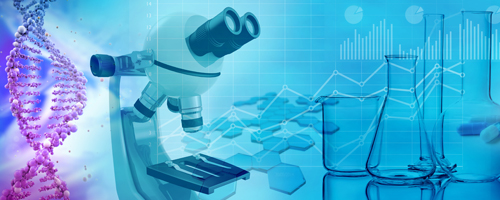Parcours : Diabetes and cardiovascular diseases
The objective of the "Diabetes and cardiovascular diseases" subprogam is to provide students with quality training enabling them to pursue a PhD program in the field of metabolic and cardiovascular diseases associated with diabetes. An overview of the most recent research in this area, in connection with the Labex EGID units, will be provided. Part of the training is dedicated to recent developments in "Omics", the impact of genetics, epigenetics and the environment on the development of cardio-metabolic diseases, the cardiovascular and hepatic complications of diabetes. The role of deregulation of the dialogue between organs and tissues in the pathophysiology of diseases associated with diabetes is discussed as well as the identification of therapeutic targets.
(From September 2026)
(Until June 2026)
This non-disciplinary transversal teaching unit offered for all students regardless of their specialization aims to either know how to analyze and interpret autonomously data from experimental or clinical research, or, if these skills are already acquired, to update their knowledge in terms of physiology / pathophysiology and characterization of the major pathologies on which research is focused at the University of Lille (Cancer - Diabetes and cardiovascular diseases - Neurosciences - Inflammation, immunity and infection). |
Block of Skills and Knowledge -BCC 3: Develop and implement an experimental approach in Biology and Health.
Elective teaching: 2 teaching subunits (1 choice from 2)
- Basic biostatistics. Learn more (PDf, 118 Ko)
- Pathophysiology upgrading. Learn more (PDF, 118 Ko)
Test: written test
The purpose of this non-disciplinary teaching unit is to provide knowledge regarding the organization of research in France and at the international level, the regulations in bio-medical research and principles of ethics applied to research. It incorporates a presentation of the various research positions and exchanges with professionals.
|
This non-disciplinary cross-sectional teaching unit aims to allow each student to prepare the research project they will personally conduct during the year of M2. |
The purpose of this fundamental disciplinary teaching unit is to provide knowledge enabling students to approach later more specialized courses in the fields of immunity, inflammation and infection. Several teaching subunits (JT) are provided. Each is organized during one day around a specific topic. Student choose six subunits related to their research project and / or essential in their specialization area. During the JT, theoretical concepts are presented through mini-conferences by experts in the field. Teaching through flipping classrooms methods are also used with presentations by students of recent research related to the topic of the day. |
Elective teaching: 13 teaching subunits (6 choices from 13)
- EC1: In vivo study of gene function and regulation. Learn more
- EC2: Chromatin and epigenetic regulation.
- EC3: Membrane receptors and associated signaling pathways. Learn more
- EC4: Nuclear receptors: structure, mechanisms, pathophysiology and study methods.
- EC5: Intra- and inter-cellular trafficking. Learn more
- EC6: The multiple forms of cell death: pathophysiological implications.
- EC7: Mitochondria and pathophysiology. Learn more
- EC8: Regulation of food intake and energy homeostasis by the central nervous system.
- EC9: Immune responses: dynamics and molecular bases.
- EC10: Human pathophysiology and ion channels.
- EC11: Glycopathology, from rare genetic diseases to acquired diseases linked to sugars.
- EC12: Experimental animal models - phenotypic characterization in metabolic and neurological diseases. Learn more
- EC13: Introduction to clinical research.
| The purpose of this disciplinary teaching unit is to provide thorough knowledge and skills necessary for research in the field of metabolic and cardiovascular diseases associated with diabetes. Click here to download the sheet of UE 2.2. (PDF, 227 ko) |
Teaching: Four teaching subunits are provided. Each subunit takes the form of a seminar on a specific topic, including conferences and mini-symposia. The students are actively associated.
- ST1: From (epi)genetics and functional genomics to precision medicine of cardiometabolic diseases. Learn more
- ST2: How they talk! Inter-organ communication in diabetes and cardiometabolic diseases. Learn more
- ST3: Complication of obesity and type 2 diabetes: focus on pathophysiology of heart, vascular and fatty liver diseases. Learn more
- ST4: Drugs and drug development in diabetes and cardio-metabolic diseases. Learn more
This teaching unit aims to provide students with knowledge of recent techniques and equipment used in molecular biology, biochemistry, cell biology and physiology which are essential for a research project in biology applied to health, in the areas of diabetes, obesity and cardiovascular diseases. |
Elective teaching: Fifteen teaching subunits (EC) are available. Students choose 8 in connection with the techniques to be implemented in their research project and / or essential in their specialization.
- EC1: Human genetics
- EC2: New applications of high throughput gene sequencing
- EC3: Proteomics and metabolomics strategies: commonalities and specificities. Learn more (update 9/6/22)
- EC4: Inference and interrogation of biological networks. Learn more (update 9/6/22)
- EC5: Editing and modification of gene expression
- EC6: Viral vectors and their applications. Learn more (update 9/6/22)
- EC7: Invertebrate models. Learn more (update 9/6/22)
- EC8: Cell culture systems for organ modeling
- EC9: Microfluidics, Organ-on-a-chip and Mechanobiology
- EC10: Flow cytometry
- EC11: Super-resolution and correlative imaging
- EC12: Single cell electrophysiology: pharmacological applications
- EC13: Preclinical imaging. Learn more (update 9/6/22)
- EC14: Medical imaging. Learn more (update 9/6/22)
- EC15: Making organs transparent
- EC16: Meta-analysis. Learn more (update 9/6/22)
- EC17: Machine learning and artificial intelligence methods. Learn more (update 9/6/22)
- EC18: Drug Discovery and Development: Recent Concepts and Strategies. Learn more (update 9/6/22)
| The purpose of this teaching unit is to implement an experimental approach allowing the design and implementation of a project in the field of precision health. This period of professional experience will take place in one of the research units belonging to the University of Lille or to another institution in France or abroad. The internship will be supervised by a professional supervisor, affiliated with the host research unit. Click here to download the sheet of UE 4.2. (update 9/6/22) |
